Are you facing academic dismissal and unsure of how to approach the situation? Crafting a well-structured petition letter can be your first step towards overturning that decision and regaining your academic standing. In this article, we'll explore essential tips and strategies to help you articulate your case effectively. Join us as we guide you through the key components of a compelling petition letter that can make all the difference!

Personal Information
Academic dismissal can significantly impact a student's educational journey and future career prospects. Students facing this situation may need to compile personal information, including full name, student identification number, and contact details, such as email and phone number. Academic history, like major, completed courses, and GPA, is also critical. Essential documents, including transcripts and communication records with academic advisors, may strengthen the case for reconsideration. Additionally, personal statements detailing extenuating circumstances, such as health issues, family emergencies, or financial difficulties, can provide context to the academic performance. This comprehensive information serves as a foundation for appealing the dismissal decision to the academic institution's review committee.
Detailed Explanation of Circumstances
Navigating academic dismissal often involves presenting a clear and thorough explanation of the circumstances leading to the situation. For students facing challenges, such as personal health issues, financial hardship, or significant life events, articulating these factors is crucial. In a petition, it is essential to detail specific events, including dates for relevant incidents (like a medical diagnosis in March 2023), the subjects affected (e.g., Mathematics or History courses), and any efforts made toward improvement, such as attending counseling sessions or seeking academic support services from the university's Learning Center. Additionally, highlighting support from faculty members or academic advisors can strengthen the case, implying awareness of the student's commitment to academic recovery. Thoughtful articulation of these elements can provide a comprehensive view that fosters understanding from the academic committee.
Evidence and Documentation
Academic dismissal can have significant implications for students, impacting their educational trajectory and future opportunities. In order to effectively petition against academic dismissal, students should provide substantial evidence and documentation to support their case. This may include transcripts showing semester GPAs, attendance records, and feedback from professors that demonstrate effort and engagement. Additionally, personal statements explaining extenuating circumstances--such as health issues, family emergencies, or financial difficulties--can provide crucial context. Furthermore, letters of support from academic advisors or mentors can enhance the overall strength of the petition by validating the student's commitment to improving academic performance and demonstrating readiness to take corrective actions. A well-organized compilation of this evidence, submitted within the established deadline set by the institution (often within a month of the dismissal notification), can significantly increase the chances of a successful appeal for reinstatement.
Apology and Responsibility Acknowledgment
A student striving to overturn academic dismissal may emphasize personal responsibility and growth in an appeal. Recent academic performance, marked by a GPA of 1.5 in the previous semester at University of Example, underscores the seriousness of the situation. Acknowledging factors such as the impact of personal challenges, including a family illness or mental health struggles, highlights the complexity of the circumstances. Expressing remorse for not seeking help through available campus resources, such as academic advising or counseling services, showcases a commitment to taking ownership of past decisions. Demonstrating a clear plan for future improvement, including attending workshops or forming study groups, illustrates a proactive approach towards academic success. By conveying a sincere desire to enhance learning outcomes and rebuild trust within the academic community, the appeal signifies a pivotal moment for personal growth and resilience.
Request for Reconsideration
Academic dismissal can significantly impact a student's future, creating stress and uncertainty regarding their educational journey. In cases where dismissal occurs due to poor performance, it is essential to outline the circumstances surrounding the academic decline, which may include personal challenges such as health issues or family emergencies. Universities, like the University of California Berkeley, have specific procedures for requesting reconsideration of academic dismissal. Students must provide detailed evidence (transcripts, medical documentation) and articulate a robust plan for improvement, highlighting their commitment to academic success. Crafting a respectful and persuasive petition letter can be crucial to reinstatement, as it not only reflects the student's dedication but also illustrates their understanding of the academic standards set by the institution.
Letter Template For Petitioning Academic Dismissal Samples
Letter template of explanation for circumstances leading to academic dismissal
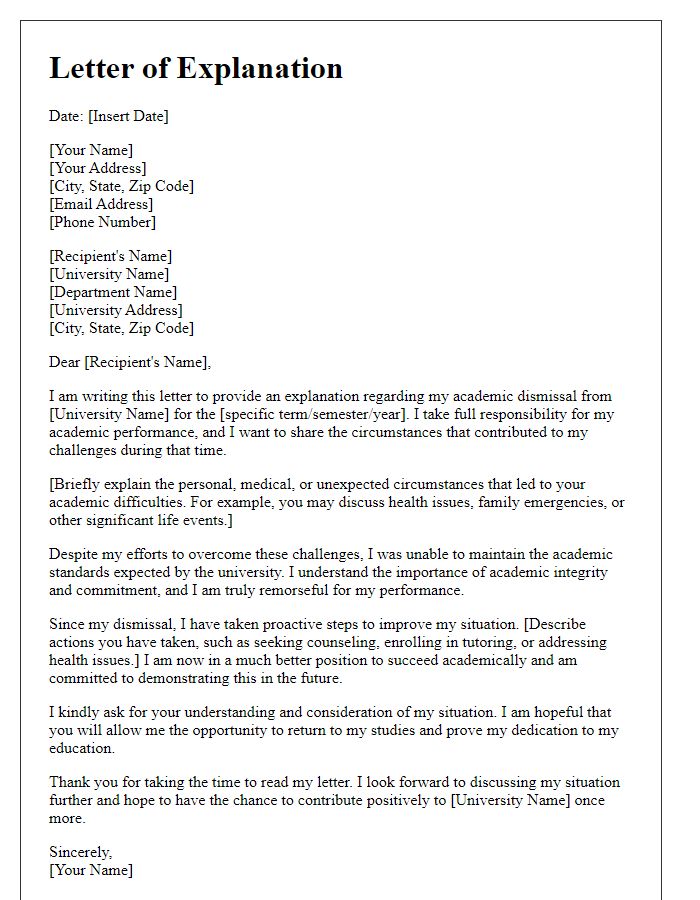

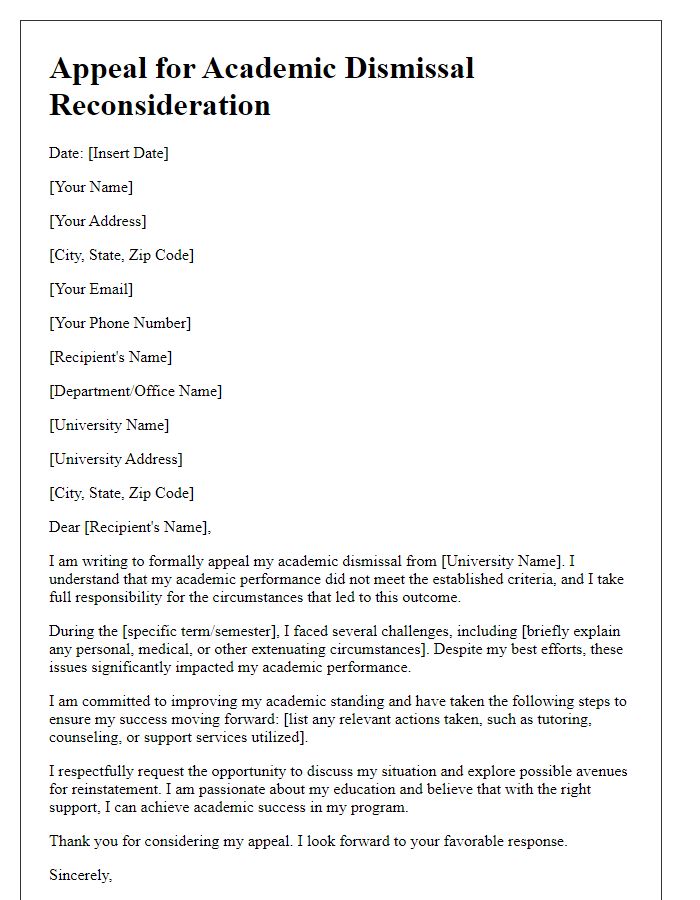
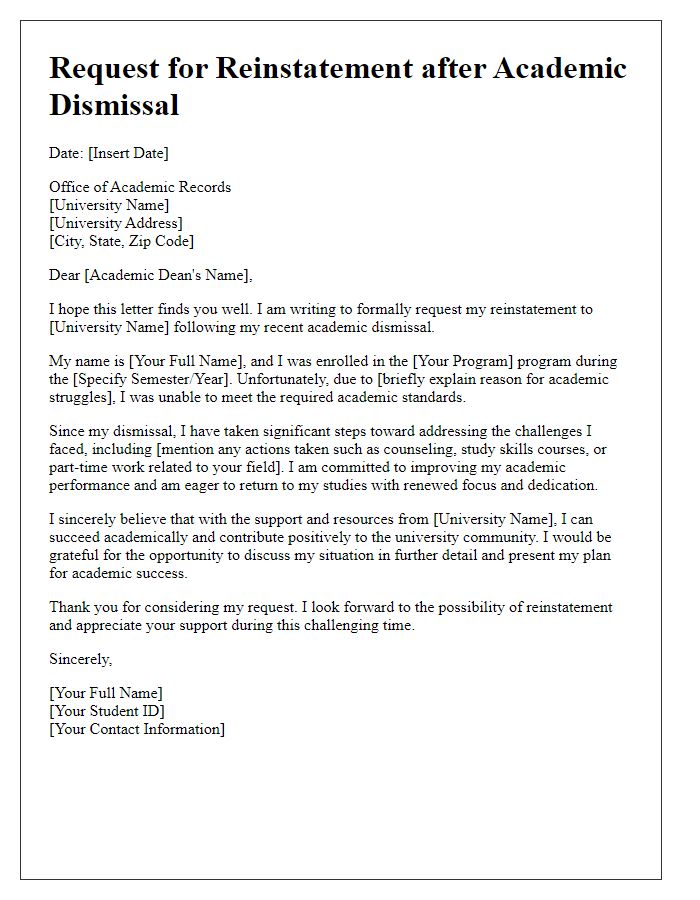
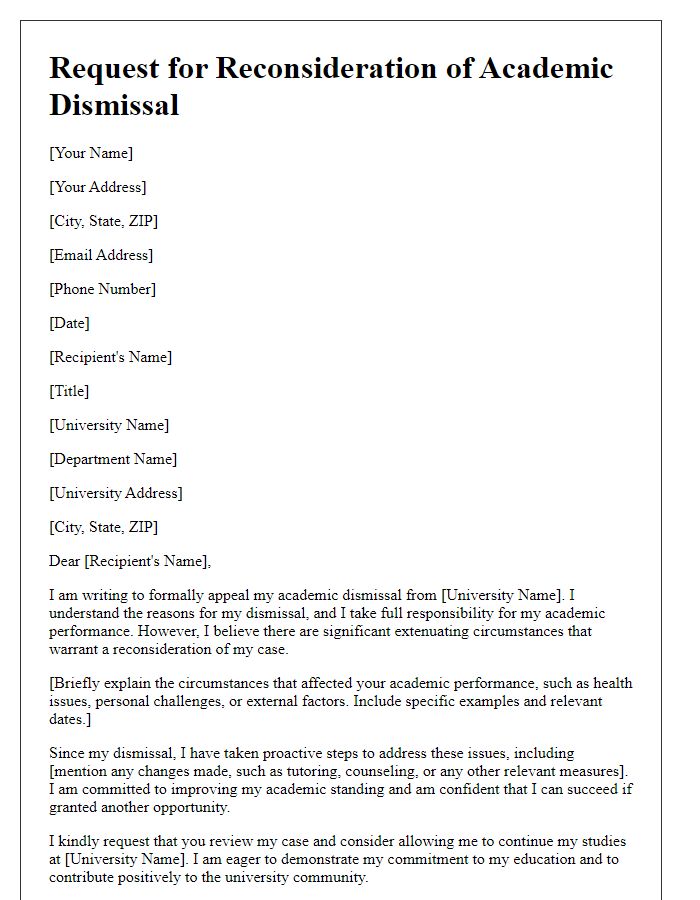
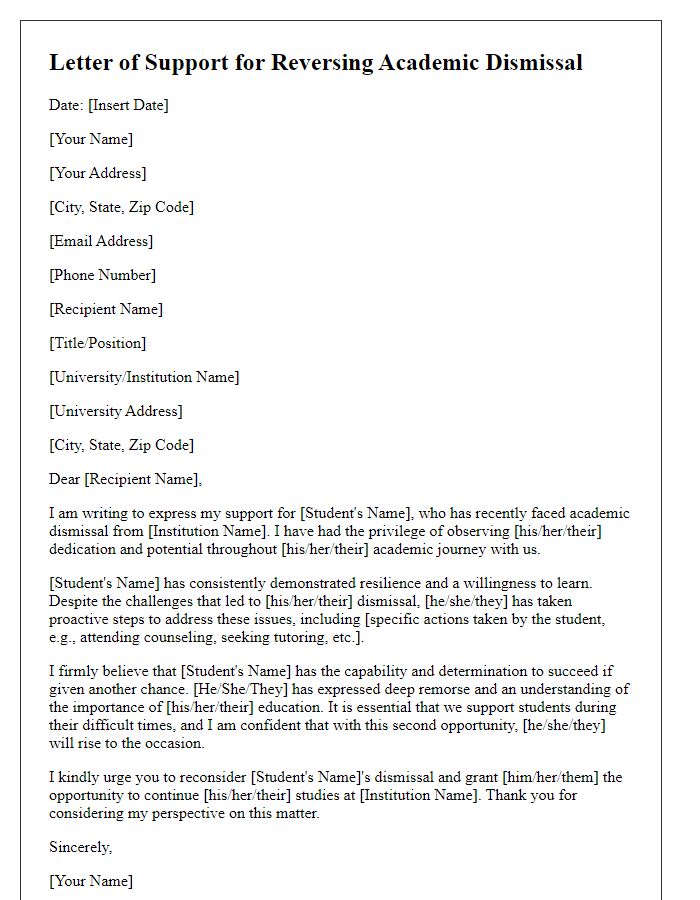
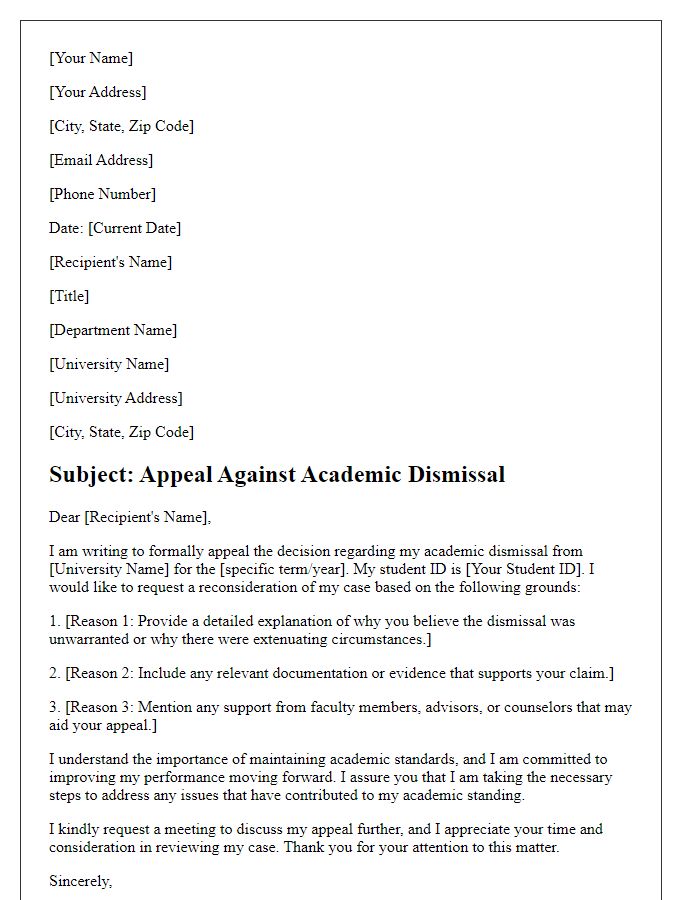
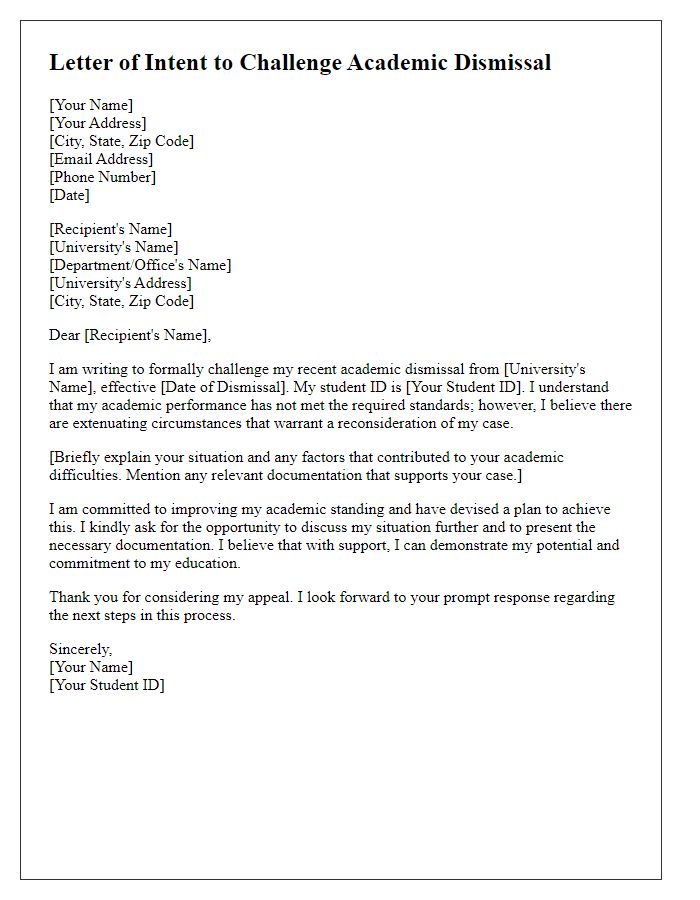
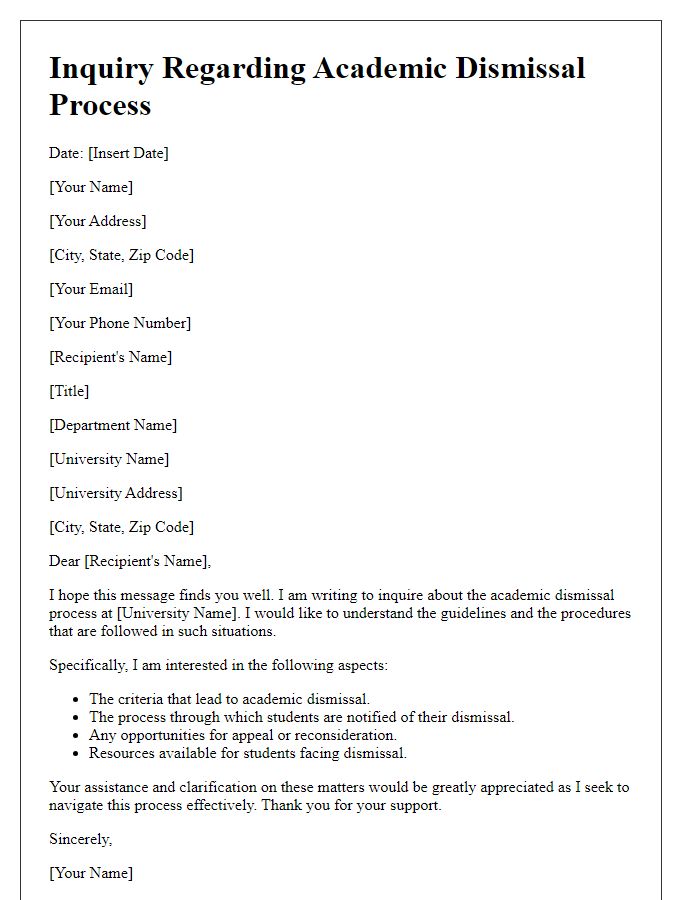
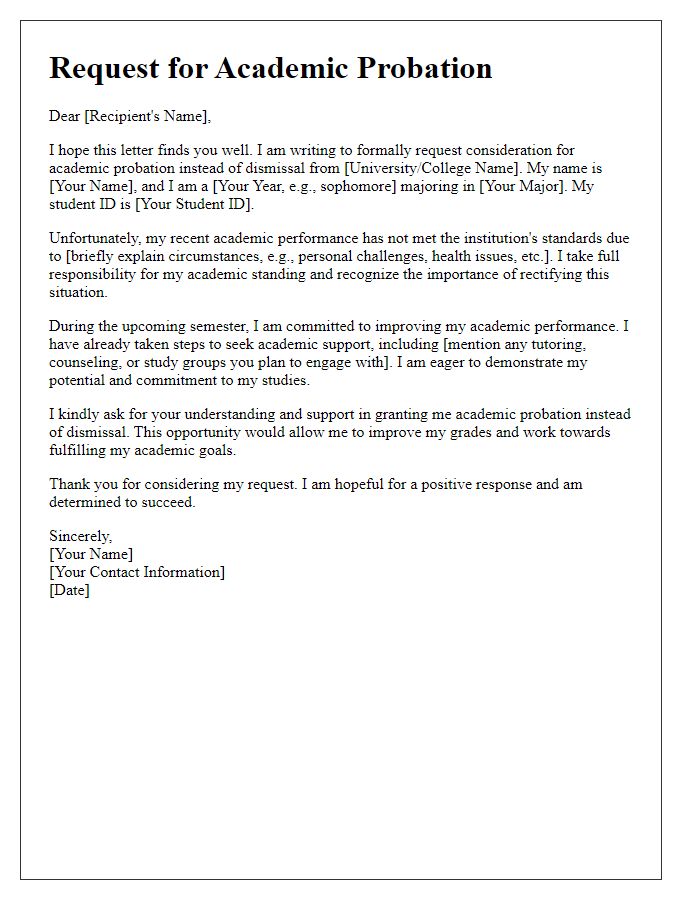
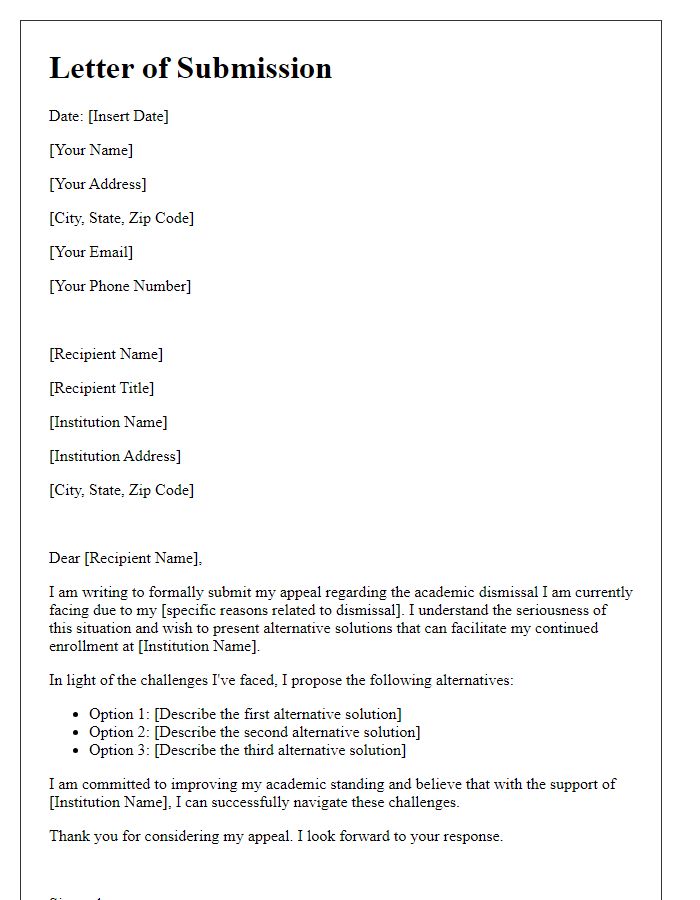


Comments